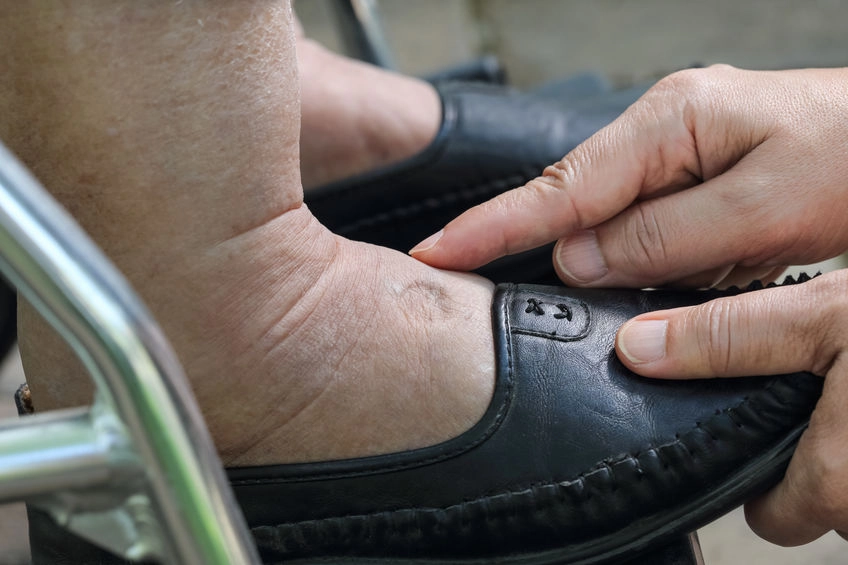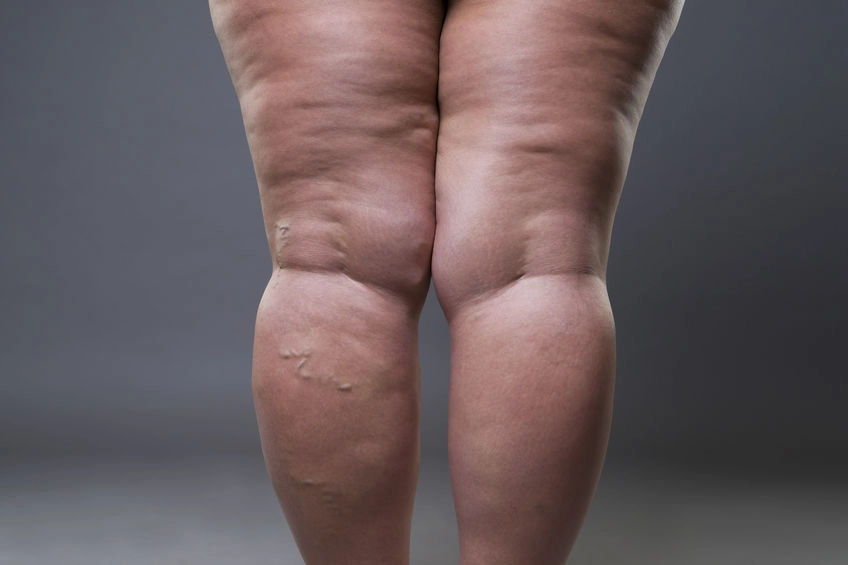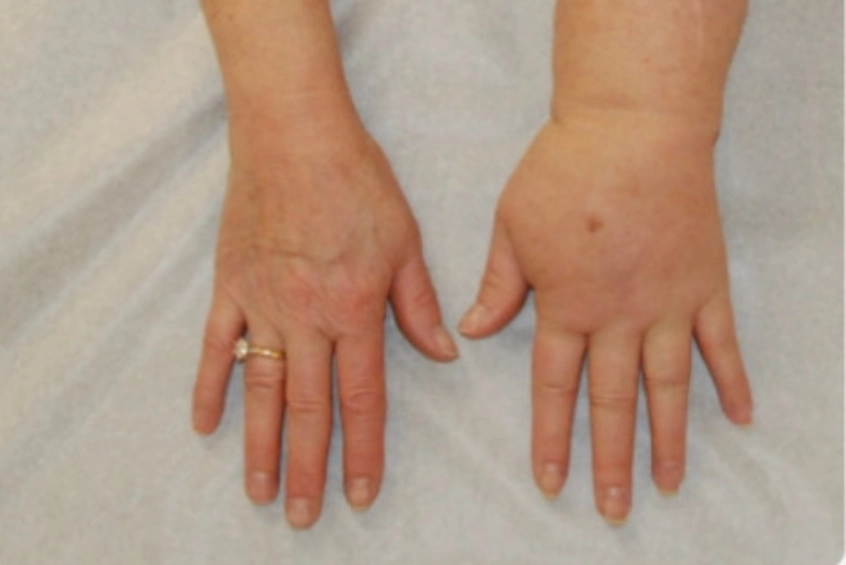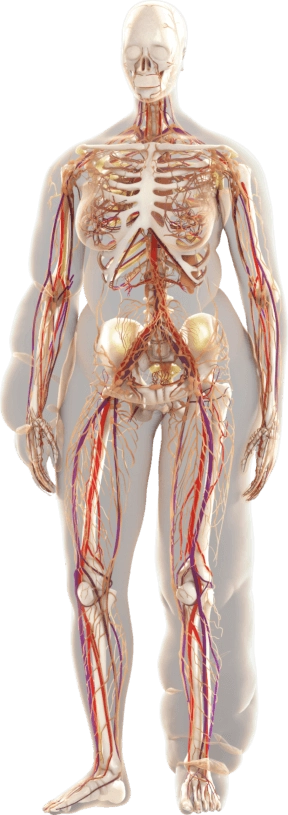Lymphedema
What is Lymphedema?
Lymphedema is an accumulation of lymph fluid in the soft tissues, most often in the arms or legs. Lymph fluid is normally filtered by the lymph nodes and is then released into the bloodstream. When the nodes are obstructed, their filtering capacity is overwhelmed, causing swelling. Lymphedema is progressive in nature and worsens over time. It is important to have early detection and treatment to prevent the worsening of the condition. Left untreated, lymphedema can lead to irreversible skin changes, risk of infection (cellulitis), reduced mobility and a diminished quality of life.



Signs & Symptoms
- Folding
- Swelling
- Sensitive Skin
- Hardening of skin
- Aching or discomfort
- Heaviness or Tightness
- Restricted Range of Motion

Risk Factors
- Age
- Obesity
- Trauma
- Pregnancy
- Lymph Node Removal
- Limited Physical Activity
- Radiation and Chemotherapy
Lymphedema Pump Treatment (APCD)
Consists of an air pump and garment(s) that fits over the affected extremity. The pump delivers air to the garment, creating a gentle massaging action, moving the accumulated fluid from the affected extremity back into the body, where it can be naturally eliminated. Pressure and the subsequent effectiveness of the treatment can be gradually increased as the patient becomes more tolerant.
